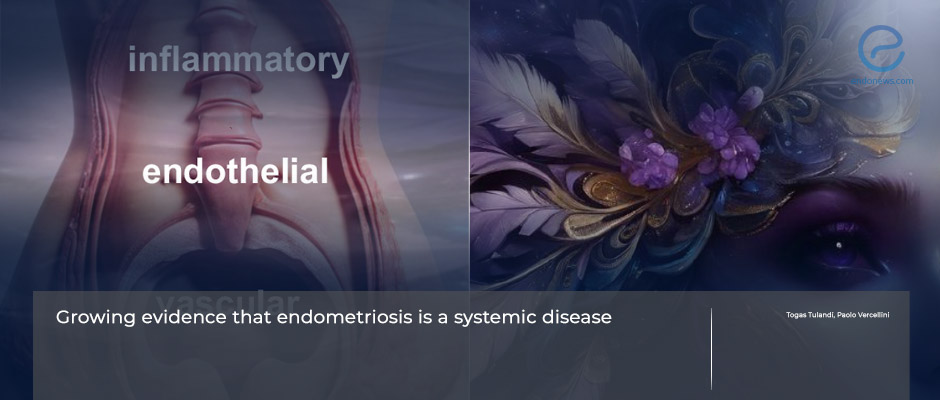Increasing evidence suggests that endometriosis should be considered a systemic disease
Aug 5, 2024
Evolving understanding of endometriosis as a systemic condition, study highlights.
Key Points
Highlights :
- Extra-pelvic endometriosis, such as thoracic location is an important clue for the possibility of endometriosis as a systemic disease.
- In this context, the widely accepted “retrograde menstruation” theory seems to be an initiating process.
Importance:
- Developing research for unique, safer anti-inflammatory and immunomodulatory remedies in patients on a long-term basis could be beneficial in endometriosis management.
What's done here :
- Two expert authors have delineated the potential clinical impact of the gateways to be opened when endometriosis attains the systemic disorder category.
Main key feature :
- Longitudinal studies could well reveal the potential impact of prolonged, low-dose anti-inflammatory drug therapy preventing the adverse effect of endometriosis on the endothelia, thus avoiding cardiovascular pathologies in long term.
Lay Summary
Professors Tulandi from McGill University, Canada, and Vercellini from Milano University, Italy, have recently published their expert opinion on endometriosis as a systemic disorder in Reproductive Biomedicine Online (RBMO).
The contemporary view on endometriosis is suggestive of a type of chronic inflammatory disease with long-term adverse consequences such as cardiovascular disease or cancer.
Recent research has yielded links between endometriosis and vascular diseases namely; atherosclerosis, migraine, and Raynaud syndrome.
The proposed detrimental effect on endothelia may even result in pre-eclampsia which may occur through complex mechanisms involving alterations in coagulation.
On the other hand, chronic inflammation is known to be associated with cell proliferation and neoplastic transformation. Thus, endometriosis is also found to be related to tubal and ovarian malignancies.
The release of chemical mediators in inflammation including tumor necrosis factor-a (TNF-a), causes further inflammation and endothelial impairment as a vicious cycle.
The expert authors conclude that further research revealing the potential impact of prolonged, low-dose anti-inflammatory drug therapy focusing on the adverse effect of endometriosis on endothelia could avoid cardiovascular pathologies in long term.
Research Source: https://pubmed.ncbi.nlm.nih.gov/38943810/
Endometriosis inflammation cardiovascular illness

